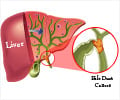New research has confirmed the role of a group of virus-fighting genes in the development of cancer.

The APOBEC family of genes control enzymes that are believed to have evolved in humans to fight off viral infections. Scientists have speculated that these enzymes are responsible for a very distinct signature of mutations that is present in approximately half of all cancer types. Therefore, understanding the cancer-causing process behind this common genetic signature is pivotal for disease control and prevention.
The team studied the genomes of breast cancers in patients with a specific inherited deletion in two of these APOBEC genes. They found that these cancer genomes had a much greater prevalence of the distinct mutational signature that is thought to be driven by the APOBEC family of genes.
"The increased frequency of this common cancer signature in breast cancer patients with APOBEC gene abnormalities supports our theory that these enzymes play a role in generating this mutational signature," says Dr Serena Nik-Zainal, first author from the Wellcome Trust Sanger Institute.
This genetic deletion is found on chromosome 22 where the APOBEC genes, APOBEC3A and APOBEC3B, sit next to each other. Women with this genetic deletion have previously been reported to be more susceptible to breast cancer.
The team examined 923 samples of breast cancer from women from across the world and found more than 140 people with either one or two copies of the deletion on each chromosome. Breast cancer in women with the deletion had a much greater quantity of mutations of this particular genetic signature.
Advertisement
"In addition to this APOBEC mediated process, there appear to be many more cancer-causing mutational processes, the underlying nature of which has yet to be understood," says Professor Sir Mike Stratton, lead author and Director of the Sanger Institute. "Working out what these mutational processes are will have profound implications in the future for how we prevent and treat cancer."
Advertisement















